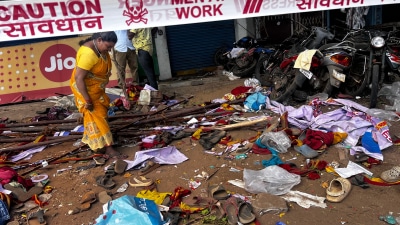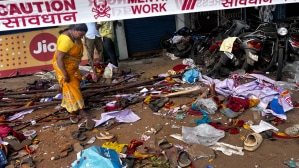NATO must cover US Afghan troop cuts: UN
Planned cuts in US troops in Afghanistan must be covered by deployment of NATO-led peace-keepers due to take place next year, the UN peace-k...

Planned cuts in US troops in Afghanistan must be covered by deployment of NATO-led peace-keepers due to take place next year, the UN peace-keeping Chief said on Tuesday. Jean-Marie Guehenno, UN Under Secretary General for Peacekeeping Operations, said after the New York Times reported the planned U.S. troop cut that there was no reason to believe there would be a gap between the troop movements. “I think it would be very important to have a continuum there and a solid engagement of the international security presence in Afghanistan,” he told a news conference during a visit to Kabul.
Guehenno said he had held talks with NATO-led International Security Assistance Force and would meet the commander of the separate US-Led force battling Taliban insurgents. “We will make that point very clear,” he said.
“I think that as ISAF takes on new responsibilities in Afghanistan, it will be important to maintain the same level of support for the security of Afghanistan,” he added.
“The Afghan Army and the Afghan National Police are making progress, but they still need our support.”
The New York Times said on Tuesday US Defence Secretary Donald Rumsfeld had signed orders that would cut US Troop numbers in Afghanistan to 16,000 from 19,000 by next spring.
A US Troop cut has been anticipated since NATO agreed to take over in southern Afghanistan next year, but NATO states have yet to say how many troops they will deploy. The New York Times quoted a senior military officer assaying Rumsfeld’s orders meant a US Brigade would deploy only 1,300 troops in Afghanistan not 4,000 as scheduled previously. The troops staying at home would be on stand-by, the official told the newspaper.
Rumsfeld signed the orders on Monday and a Pentagon announcement was expected on Tuesday, it said. NATO is looking to boost its 9,000-strong ISAF peace-keeping force to 15,000 and expand into the volatile South, where Taliban and allied insurgents are most active.
However, on Monday, the Dutch cabinet delayed a decision on sending more troops as part of the expansion amid mounting concerns about security.
Dutch ministers said they had postponed a decision till Thursday. Parliament must also vote on the troop deployment, but is not expected to debate the subject until January.
The centrist D66, Junior partners in the Dutch ruling coalition, has threatened to vote against the mission and most opposition parties in parliament are also opposed.
Britain, which is due to take command of ISAF next year and deploy troops in the South alongside Canadian and Dutch forces, has yet to say how many troops it will send.
The Taliban, meanwhile, have stepped up attacks on the ISAF.






- 01
- 02
- 03
- 04
- 05

























